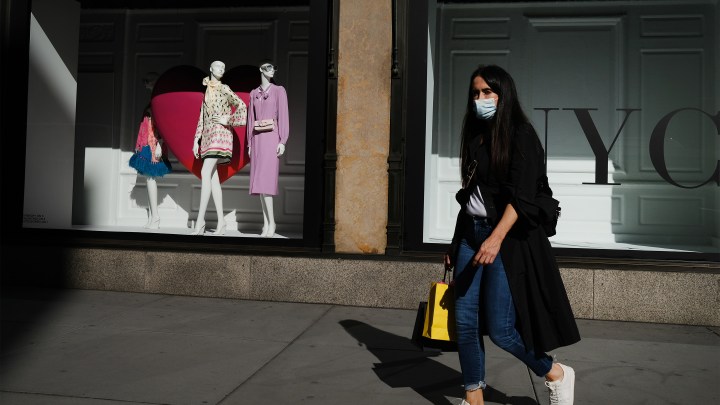
Consumer spending rises — for now

The Commerce Department reported Friday consumer spending rose by over 8% in May — the biggest jump since records began in 1959. It sounds like some welcome news for the economy, right? Not so much.
It’s hard to get too excited about an 8% uptick in May after consumer spending dropped by almost 20% in March and April.
An increase was almost inevitable.
“You can’t look at an 8% jump in consumer spending and suggest you’re going to get that month after month,” said Liz Ann Sonders, chief investment strategist at Charles Schwab.
She said a big factor that’s been propping up spending is expanded unemployment benefits. More people are eligible, and they’re getting more money than they would have before the pandemic.
We’re talking tens of billions of dollars.
“There is more money sloshing around out there by virtue of what Congress has done than if we didn’t have a pandemic,” Sonders said.
All of that money is set to disappear when those benefits expire next month, according to Josh Bivens, director of research at the Economic Policy Institute.
“That’s going to be a really sharp blow to personal income when that happens,” he said. After that, he continued, there’s another economic blow on the way.
State and local governments are about to draw up their budget plans for next year. And with tax revenue down and emergency spending up, they could slash 4 million jobs, according to a report this week from Moody’s Analytics.
Bivens said if that happens, the impact will spread far beyond the public sector.
“If a teacher loses their job, they cut back their spending,” he said. “They don’t go to restaurants, they don’t buy the new washing machine they need, they don’t buy other things.”
States could rehire those employees as they start to reopen and take in more sales taxes as people spend more. Economist Peter Orazem at Iowa State University said that’s not going very smoothly.
“It looks like a lot of states are now reversing some of that opening up, because they haven’t been able to contain the spread of the disease,” Orazem said.
And until they can contain the spread, he said, everyone will have more to worry about than whether consumers are spending.
There’s a lot happening in the world. Through it all, Marketplace is here for you.
You rely on Marketplace to break down the world’s events and tell you how it affects you in a fact-based, approachable way. We rely on your financial support to keep making that possible.
Your donation today powers the independent journalism that you rely on. For just $5/month, you can help sustain Marketplace so we can keep reporting on the things that matter to you.


















